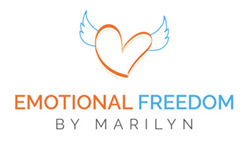What is Trauma Healing?
Trauma is an overwhelming experience that leaves its marks. It is a mental and emotional health issue that can stem from various causes or events such as neglect, violence, accidents, rape, sexual abuse, natural disasters, and more. Psychological trauma can lead to devastating emotional effects, which can also eventually cause physical symptoms or harmful habits to develop, such as substance abuse, and may be damaging if left unresolved. Allow my healing hands to resolve trauma’s psychological, emotional, and physical impact by releasing you from the negative energy stored in your subconscious.
Let me take you through the journey toward your recovery, which involves my unique, hands-on, energetic communication with your subconscious located throughout your body. This process can help you overcome emotional symptoms, such as anxiety, depression, insomnia, avoidance, intrusive thoughts and memories, nightmares, and other difficulties related to your trauma.
What Can I Expect During a Trauma Healing Session?

We will begin each session with a 15-30 minute free life coaching to discuss your current issues and progress.
Once we determine where we stand, we will commence your trauma therapy with any one or a combination of these energy healing methods:
Chakra Clearing
Traumatic events can form blockages and imbalances in the body’s energy centers or chakras. Chakra clearing can address trauma by freeing you from these blockages. Let me help you through various methods to restore ideal energy flows to enable you to recover.
Jin Shin Release
Jin Shin release therapy can bring a sense of calm and reduce stress. By touching on specific points on your body in a particular sequence, I can release energy blockages and imbalances caused by suppressed emotions or traumatic events.
Somatic Energy Release
Traumatic events cause blockages and energy imbalances in our bodies. Somatic energy release therapy removes the energy imbalance caused by a traumatic experience. Somatic energy release frees you from the emotional blockages that have been holding you back.
Energy Healing
My healing hands are divinely guided to locate and transmute negative energies formed by traumatic experiences and free you from these damaging forces holding you back.

I Am Ready to Help You Move Forward Into New Possibilities Through Trauma Healing
Twenty-eight years ago, my journey of introspection began after facing two consecutive traumatic events. The first event was a physical trauma, followed by an emotional one. Approximately eight years later, I discovered my unique talent for helping people energetically liberate themselves from unresolved emotional burdens, a gift that became apparent shortly after I embodied unconditional love.
Fourteen years later, I embodied self-love, which opened my ability to facilitate physical healing as well. Having first healed myself, I possess the vibrational balance needed to aid others in their healing journey, significantly accelerating their progress compared to their solo efforts.
By seeking my energetic guidance, you can achieve balance, overcome anxiety, break free from recurring habits and patterns, relinquish reactive tendencies, revel in the present moment, access new possibilities, and ultimately evolve into your empowered and authentic self.
For more information or to book a trauma healing session, text me at (310) 903-9336. I offer a free 15-minute exploratory call.
Frequently Asked Questions
Trauma, stemming from various events like accidents, abuse, or even personal failures, profoundly affects individuals’ lives, causing mental health challenges such as anxiety and depression. However, healing from trauma is possible through active engagement and support.
Acknowledging the trauma and accepting help are crucial initial steps. Seeking therapy from mental health professionals can significantly aid recovery. Additionally, practicing self-care, focusing on physical health, and incorporating mindfulness or meditation into daily routines can help manage trauma-related stress and anxiety.
Engaging in creative and enjoyable activities, maintaining a routine, and journaling experiences can provide a sense of normalcy and aid in processing emotions. Avoiding harmful coping mechanisms like substance abuse and being patient with the healing process are crucial. Healing from trauma is a journey that requires time, persistence, and positive coping strategies, leading to a life free from its grip.
Somatic healing and healing touch therapies stand out as potent and swift approaches. Recognizing the intricate connection between mind and body, somatic healing delves into the physical manifestations of trauma, allowing individuals to release deep-seated emotions and rediscover a sense of safety within their bodies. Guided by my healing hands, I assist my clients in navigating this transformative journey, empowering them to overcome emotional blockages and embrace newfound freedom.
Acknowledging and liberating ourselves from self-created emotional barriers are pivotal steps toward healing. Through my tailored, non-verbal, somatic therapy approach, I guide my clients through a process of letting go. Together, we untangle the emotional pain and trauma of the past, allowing them to experience life from a fresh perspective. My techniques facilitate the release of burdens, enabling my clients to move on and live more fulfilling lives free from trauma.
Our brains have a remarkable capacity to retain traumatic moments, even long after they occur, explaining why emotional trauma lingers long after the triggering event has passed.
We’ve all experienced incidents that haunt us, like spilling coffee on the way to work or missing a crucial flight. However, trauma goes deeper. It stems from emotionally painful or abusive encounters, from physical accidents to psychological abuse. Many events can trigger a traumatic response, making the healing process unique for each individual.
But what exactly is trauma? It manifests as a lasting emotional response following a mentally and physically stressful event. Like a physical scar taking time to heal, trauma recovery is possible with time and proper treatment. Avoiding or ignoring trauma symptoms isn’t a healthy coping mechanism—it can exacerbate the problem.
When trauma occurs, the mind retains the emotional impact, sometimes holding the trauma response in readiness.
Trauma primarily affects two brain regions:
- Amygdala: The emotional center of the brain governs reactions to positive and negative experiences. Trauma can cause this region to become overly active and hypersensitive to potential threats.
- Hippocampus: Responsible for memory, the hippocampus encodes how one feels during traumatic events. When impacted by trauma, it blurs the line between past and present, making past trauma feel immediate. Consequently, triggers can evoke traumatic memories, eliciting fight-or-flight responses even without real danger.
These triggers can be innocuous, yet they reignite the intensity of the original trauma. For example, the sound of a plane may transport a veteran with PTSD back to the fear of the battlefield, or a thunderclap may induce the same anxiety experienced during a traumatic event.
Unresolved trauma from the past can intrude into the present, causing panic attacks, depression, or disrupting daily life. Prolonged or repeated trauma can lead to complex post-traumatic stress disorder (C-PTSD).
Acknowledging these painful moments is crucial, labeling them as what they are: trauma. It’s not merely a minor setback but a significant part of your life story, deserving recognition and healing.
Moreover, healing from trauma involves releasing emotional blocks, allowing life-force energy from the universe to move freely through us. As we let go of these blockages, we open up our body’s channels, living in the flow, in a state of love, and without fear.
Healing ourselves in this way benefits us and positively impacts everyone around us. When we acknowledge and release our self-created emotional blockages, freedom emerges. I am here to assist you in achieving that freedom. My guided hands will help remove the emotional pain and traumas from the past that are holding you back. You will experience a new way of living through my hands, grounded in peace, love, and new opportunities.
Both somatic healing and psychotherapy can be valuable approaches for healing traumatized individuals, but their effectiveness may vary depending on the person’s unique needs and preferences. It’s essential to recognize that there is no one-size-fits-all approach to trauma healing, and different individuals may respond differently to various therapeutic modalities.
Somatic healing focuses on the mind-body connection, working with the body’s sensations, movements, and energy to release and heal trauma stored in the body. Somatic healing addresses trauma-related symptoms and promotes healing by accessing and processing trauma at a physiological and sensory level. It’s a much quicker process than talk therapy.
On the other hand, psychotherapy, such as CBT (cognitive-behavioral therapy), EMDR (eye movement desensitization and reprocessing), or psychodynamic therapy, primarily focuses on addressing trauma through verbal communication, understanding thoughts and emotions, and exploring past experiences. Psychotherapy aims to help individuals gain insight, process emotions, develop healthy coping strategies, and reframe traumatic experiences in a safe, supportive therapeutic relationship.
The choice between somatic healing and psychotherapy, or a combination of both, depends on several factors, including the individual’s preferences, the nature of the trauma, the severity of symptoms, and the expertise of the therapist or healer. Some individuals may find somatic healing approaches helpful in reconnecting with their bodies and releasing deeply held trauma. In contrast, others may resonate more with traditional talk therapy to explore and process their experiences.
It’s worth noting that somatic healing and psychotherapy are not mutually exclusive, and many therapists integrate somatic techniques into their psychotherapeutic approach.
Ultimately, the effectiveness of any therapeutic approach, whether through energy healing or psychiatry, will depend on the individual’s readiness, willingness to engage in the healing process, and the quality of the therapeutic relationship established with the therapist or healer. Exploring a variety of modalities and gathering information will help you determine the best approach for your healing journey.
Trauma becomes post-traumatic stress disorder (PTSD) when the effects of the traumatic experience persist for an extended period and significantly impact a person’s daily functioning and well-being. Because some people have stronger resilience to traumatic events, not everyone who experiences trauma will develop PTSD, it can occur after experiencing or witnessing a frightening or traumatic event involving life-threatening situations or witnessing actual death, serious injury, or sexual violence.
To be diagnosed with PTSD, the following criteria must generally be met:
Exposure to a traumatic event: A person has been through one or several traumatic events, such as a natural disaster, physical or sexual assault, combat, or a serious accident.
Intrusive symptoms: The person experiences intrusive symptoms, such as distressing memories, flashbacks, nightmares, or intense emotional or physical reactions when reminded of the traumatic event.
Avoidance: The person actively avoids reminders of the traumatic event, such as avoiding certain places, people, or activities that might trigger distressing memories or emotions.
Negative changes in thinking and mood: The person experiences negative thoughts or beliefs about themselves, others, or the world, persistent negative emotional states, diminished interest or pleasure in activities, and a sense of detachment or estrangement from others.
Hyperarousal: The person displays heightened arousal, such as being easily startled, having difficulty sleeping, experiencing irritability or anger, or having difficulty concentrating.
These symptoms of PTSD must persist for at least thirty days and cause significant distress or impairment in functioning.
Some cases of substance dependency can be linked to a traumatic event. People resort to unhealthy habits, such as alcohol addiction and cigarettes, to try to cope with traumatic events. Many of us may have these emotions suppressed profoundly within our subconscious. When our subconscious rules us, it drives us to crave these substances to suppress the effects of traumatic experiences. Unhealthy habits are another reason people who hold negative energy deep within their subconscious need to be healed.
Yes. People have a natural tendency to suppress their emotions. Trauma, among other emotional issues, leads to unhealthy ways for people to try to cope. They may associate specific types of people with a traumatic event, preventing them from forming healthy relationships. In some of the worst cases, people going through trauma may withdraw from society entirely. That is why healing people who have trauma is an essential part of ensuring that they can move forward, living a healthier life where they can blend well with the rest of society.
Post-traumatic Stress Disorder, or PTSD, is one of the most severe cases of trauma. Through trauma healing, I can free a person living with PTSD by removing the energy blockages that bind them.
